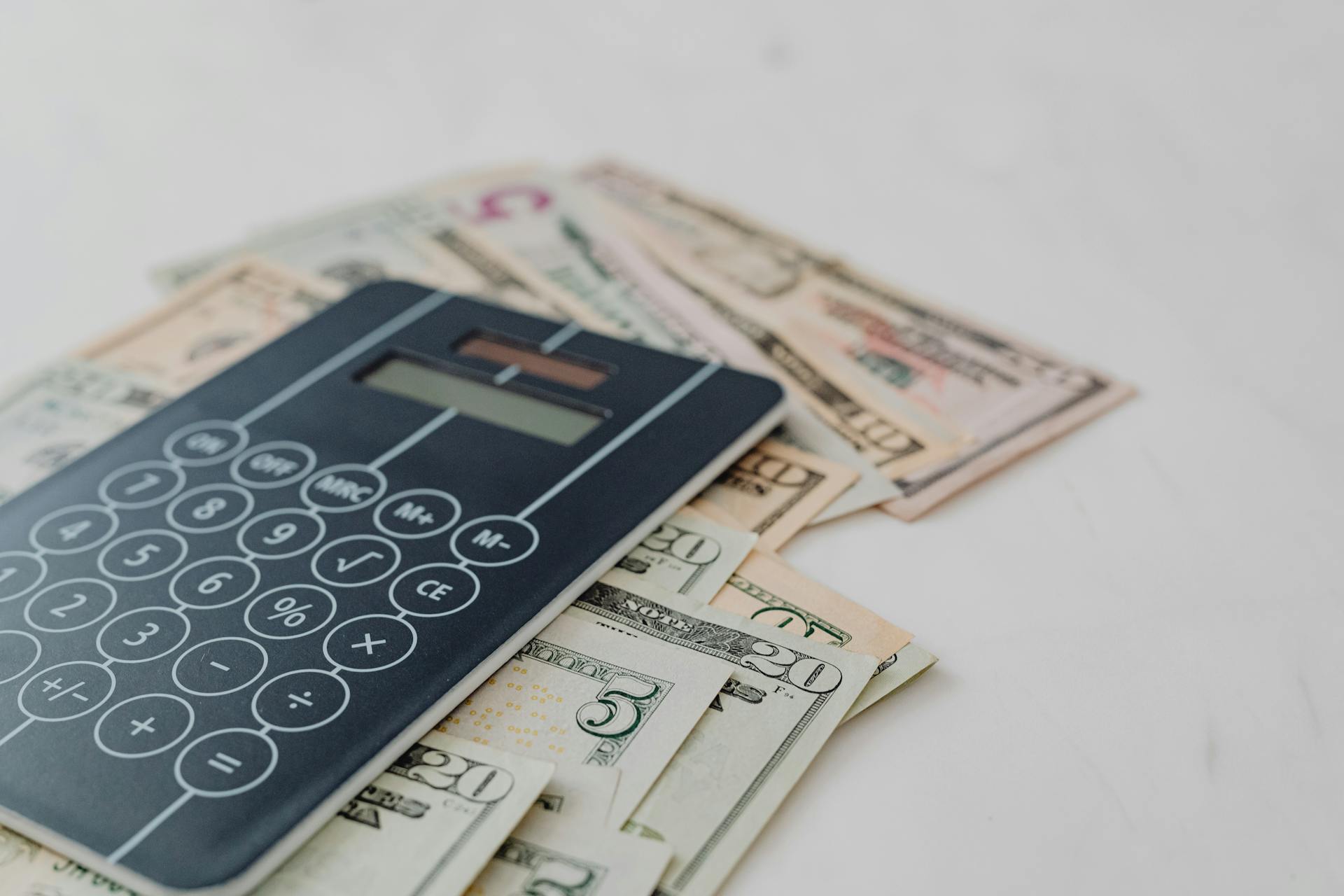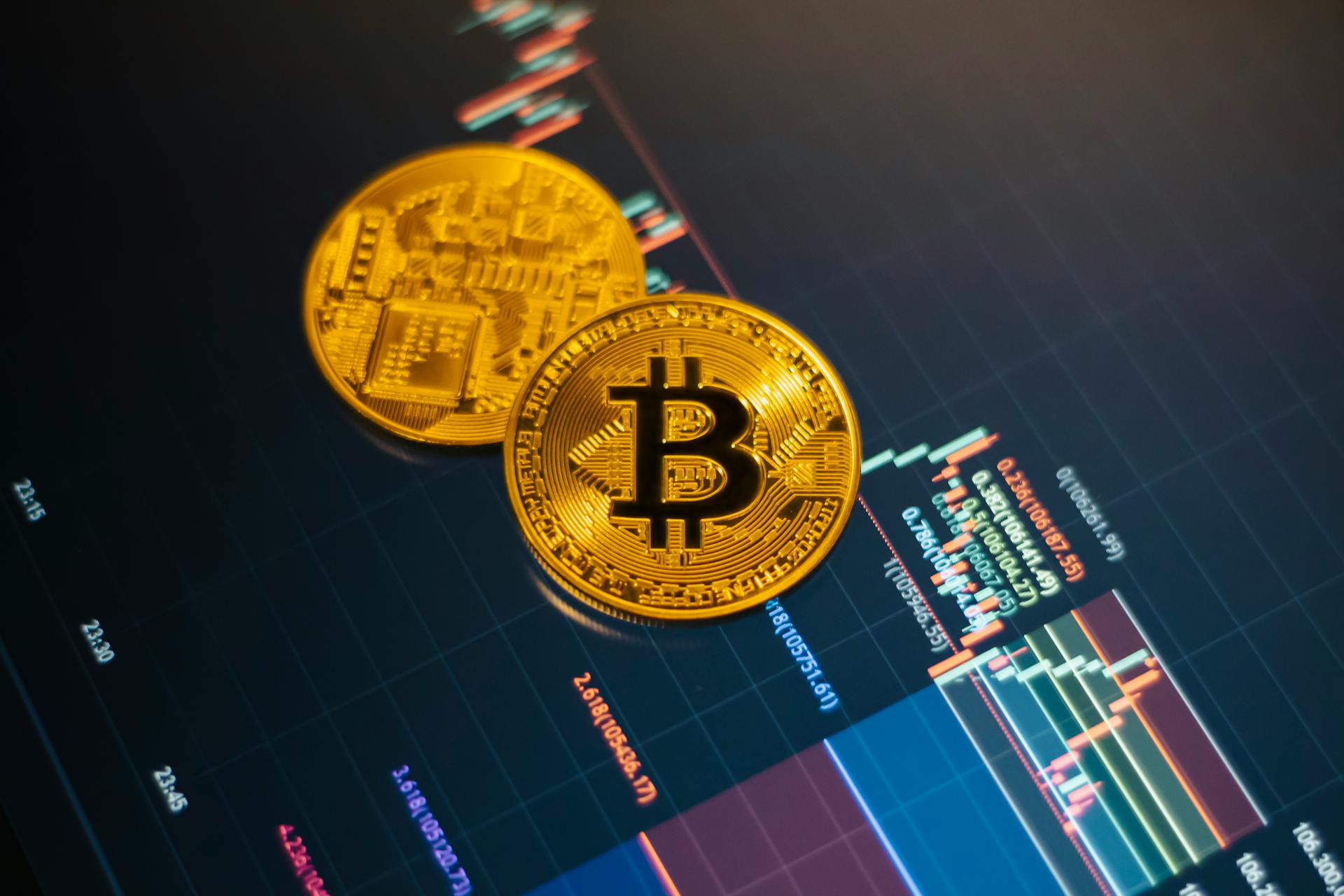
Debanking is a growing concern for individuals and businesses alike. It's the practice of banks and financial institutions closing or limiting customer accounts, often without explanation or notice.
This can happen for a variety of reasons, including anti-money laundering regulations, suspicious activity, or even just a bank's desire to reduce its customer base.
Imagine having your bank account suddenly closed, leaving you unable to pay bills or access your own money. It's a stressful and frustrating experience, and it's exactly what happens to people who are debanked.
Debanking can have serious consequences, including financial instability, damage to credit scores, and even loss of access to essential services like healthcare or housing.
What is Debanking
Debanking is when a law-abiding person or entity unexpectedly loses their banking relationship.
It's not the same as losing banking services due to suspected or confirmed illicit activity.
Debanking can happen without any investigation, detailed explanation, or advance notice.
This means the affected party may not have time to move their funds.
There is no due process, appeal process, or other recourse in cases of debanking.
Causes and Motivations
Banks may close accounts for legitimate reasons, such as suspicious activity or to reduce regulatory compliance costs. However, this isn't the kind of debanking that's causing concerns.
Regulatory authorities are allegedly using their power to pressure banks into dropping clients in certain industries or with political affiliations they don't like. This is what's raising red flags around debanking.
Banks often acquiesce to this pressure because they don't want to be adversarial with their regulators, and they also don't want to deal with the compliance headaches that come with resisting.
Do Banks Hate Churches?
Churches have become increasingly wary of big banks, as noted by Paul Houghton, CEO of Kingdom Bank. This perception is rooted in a lack of understanding about the banks' intentions and operations.
Banks don't necessarily hate churches, but rather, they have different priorities and goals. Kingdom Bank's CEO, Paul Houghton, is trying to understand the churches' concerns and address them.

Churches often view banks as profit-driven entities that don't care about their well-being. This perception is not entirely unfounded, as big banks do prioritize making a profit over other considerations.
However, it's essential to note that banks and churches have different business models and goals. Kingdom Bank's CEO is trying to bridge this gap by understanding the churches' needs and concerns.
Why Would the Government Do This?
The government's motivations for debanking are complex and multifaceted. One reason cited is to tackle payment processor fraud and prevent risky businesses from operating, which is often referred to as "de-risking" rather than debanking.
De-risking involves terminating or restricting business relationships with broad categories of clients, rather than analyzing and managing risk in a targeted manner. This approach can be used as a partisan tool to kill legal businesses for political reasons alone.
Certain government agencies may want more discretion and authority to decide where and under what circumstances consumers can obtain loans, financial products, and other banking services. This can be seen as a form of government overreach or abuse of power.

The government's actions can have unintended consequences, including impeding consumer choice, having a chilling effect on commerce, and undermining the government's own policy objectives. According to a report from The Department of Treasury (2023), debanking can drive financial activity out of the regulated financial system.
Here are some specific ways in which debanking can have negative effects:
- Driving financial activity out of the regulated financial system
- Hampering remittances or delaying the unencumbered transfer of international development funds and humanitarian/disaster relief
- Preventing low- and middle-income segments of the population, as well as other underserved communities, from efficiently accessing the financial system
- Undermining the centrality of the U.S. financial system
Legitimate businesses and individuals can be punished merely by association, as seen in the example of someone having their previously approved mortgage revoked simply because they worked for an open source foundation in the crypto industry.
Business Fairness
Businesses are being treated unfairly, with a significant spike in debanking-related complaints received by the Financial Ombudsman Service, increasing by 81% year-on-year, from 367 in 2022-23 to 666 in 2023-24.
Banks are closing accounts quickly and without reason, citing perceived risks, but their due diligence is not an exact science. This can lead to businesses being wrongly debanked.
The UK government has proposed tighter rules to protect businesses, requiring banks to give at least 90 days notice before closing an account and provide clear explanations for their decision.
Businesses should be aware of these proposed rules and take steps to protect themselves, as tighter regulations are on the way.
Operation Choke Point
Operation Choke Point was a policy initiative launched by the U.S. Department of Justice in 2013 as part of the president's Financial Fraud Enforcement Task Force.
This marked a shift in strategy for the government, targeting banks and payments companies instead of individual firms for wrongdoing. The government was using its regulatory oversight to improperly "choke off" access to financial services and shut down accounts.
The goal was to stifle businesses in industries the administration didn't favor, as observed by the then-head of the U.S. banking industry trade association, the American Bankers Association.
In his 2014 op-ed for the Wall Street Journal, Frank Keating, former president and CEO of the American Bankers Association, criticized the program, saying the Justice Department was asking banks to behave like policemen and judges.
The program was ostensibly shut down the following year following legal, congressional, and agency backlash.
Today, the phrase "Operation Choke Point 2.0" is sometimes used to refer to the government debanking "political enemies and disfavored tech startups".
Consequences and Impact
Debanking can cause significant upheaval and distress, making it practically impossible for businesses to operate without a bank account. Routine activities like paying employees and bills, or receiving money from customers, suddenly become impossible.
The primary reason for business account closure is the commercial cost of complying with anti-financial crime requirements, which particularly affects adult entertainment, pawnbroking, and crypto businesses. This can lead to long-lasting reputational damage and financial ostracisation.
Banks have access to transactional and behavioural insights, which can be shared with other institutions and prevent individuals or businesses from opening an account or securing loans elsewhere. This has a chilling effect on commerce overall, undermining the U.S. government's own policy objectives.
Here are some of the unintended consequences of debanking:
- Driving financial activity out of the regulated financial system;
- Hampering remittances, or delaying the unencumbered transfer of international development funds and humanitarian/disaster relief;
- Preventing low- and middle-income segments of the population — as well as other underserved communities — from efficiently accessing the financial system;
- Undermining the centrality of the U.S. financial system.
Consequences
Debanking can have severe consequences for individuals and businesses. It can cause significant upheaval and distress, making it difficult to operate a business or manage daily finances.
Being debanked can lead to long-lasting reputational damage and financial ostracization. Banks can share transactional and behavioural insights with other institutions, making it hard to open a new account or secure loans elsewhere.

The primary reason for business account closure is often the commercial cost of complying with anti-financial crime requirements. This particularly affects adult entertainment, pawnbroking, and crypto businesses.
Banks usually give two months' notice before closing an account, except in cases of suspected fraud, where there is no minimum notice requirement.
Debanking can drive financial activity out of the regulated financial system, hamper remittances, and delay the unencumbered transfer of international development funds and humanitarian/disaster relief.
The practice of debanking can also prevent low- and middle-income segments of the population – as well as other underserved communities – from efficiently accessing the financial system.
Here are some unintended consequences of debanking:
- Driving financial activity out of the regulated financial system
- Hampering remittances
- Delaying the unencumbered transfer of international development funds and humanitarian/disaster relief
- Preventing low- and middle-income segments of the population – as well as other underserved communities – from efficiently accessing the financial system
- Undermining the centrality of the U.S. financial system
Why Does It Matter?
It matters because we already have fair banking rules in place to prevent discrimination based on various factors, but there's no protection against banks or regulators denying or revoking banking services at their whim.
Debanking can be used as a tool to target specific individuals or industries without due process, similar to how the government would treat a service like electricity.
This lack of accountability is alarming, as it allows for arbitrary decisions to be made without explanation, investigation, or recourse.
Imagine if the government could decide who gets electricity based on politics or some other arbitrary reason, without having to justify it – that's basically what's happening with debanking.
The fact that banks can deny or revoke services without due process is a major concern, and it's essential to address this issue to prevent further abuse.
Frequently Asked Questions
What to do when debanked?
Get in touch with your bank's customer service team immediately if your business account is closed unexpectedly. If unresolved, consider filing a complaint with the Financial Ombudsman Service or opening a new account
What is deb on a bank statement?
DEB on a bank statement indicates a debit card payment was made. This type of transaction is processed using your debit card
Sources
- https://theconversation.com/pacific-islands-are-being-debanked-what-does-it-mean-and-why-are-australia-nz-and-the-us-concerned-234157
- https://www.kingdom.bank/the-de-banking-phenomenon-a-response-from-our-ceo/
- https://www.raconteur.net/finance/three-minute-explainer-on-debanking
- https://www.keypointlaw.com.au/keynotes/debanking-what-it-is-and-what-you-can-do-about-it/
- https://a16zcrypto.com/posts/article/debanking-explained/
Featured Images: pexels.com

